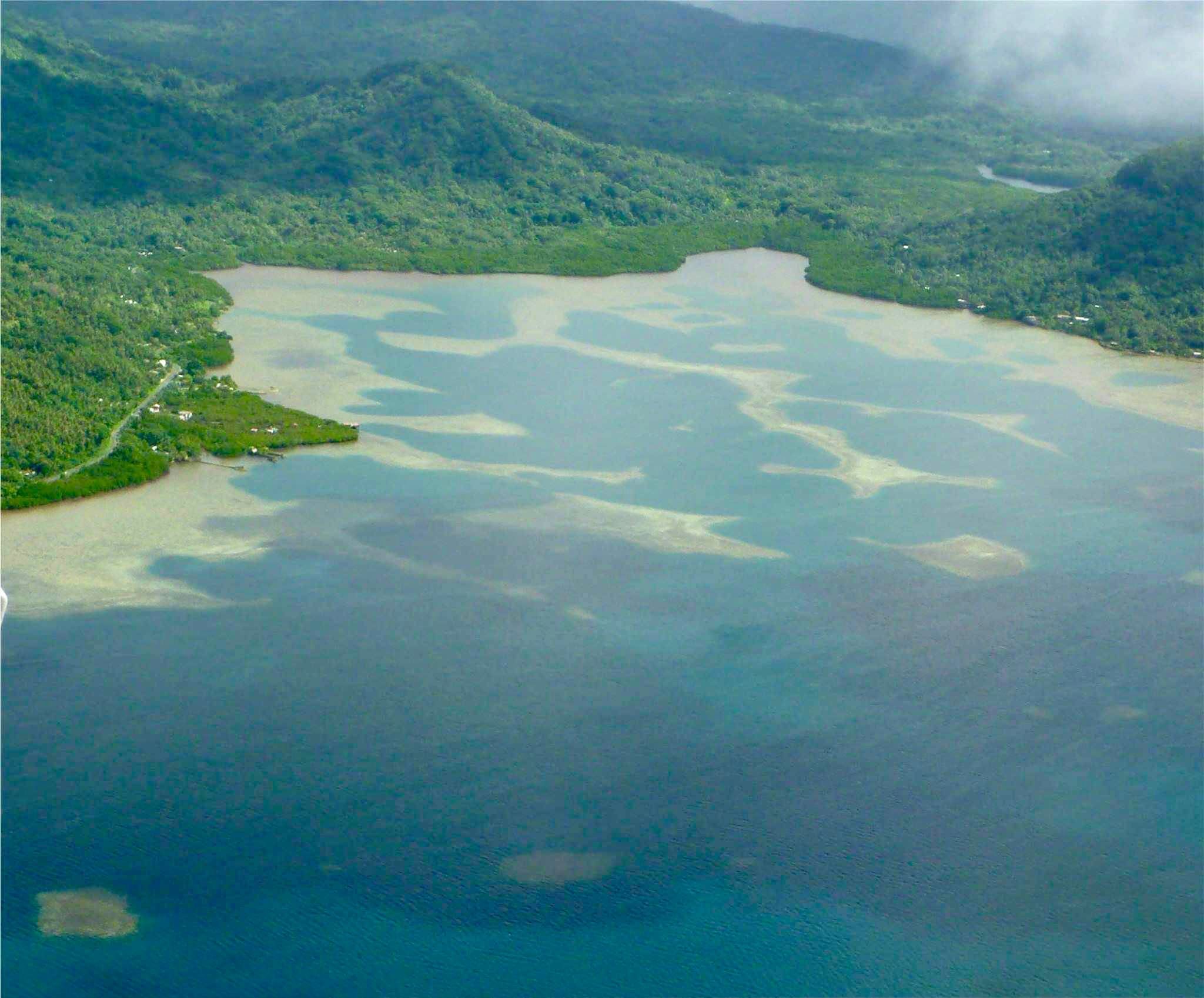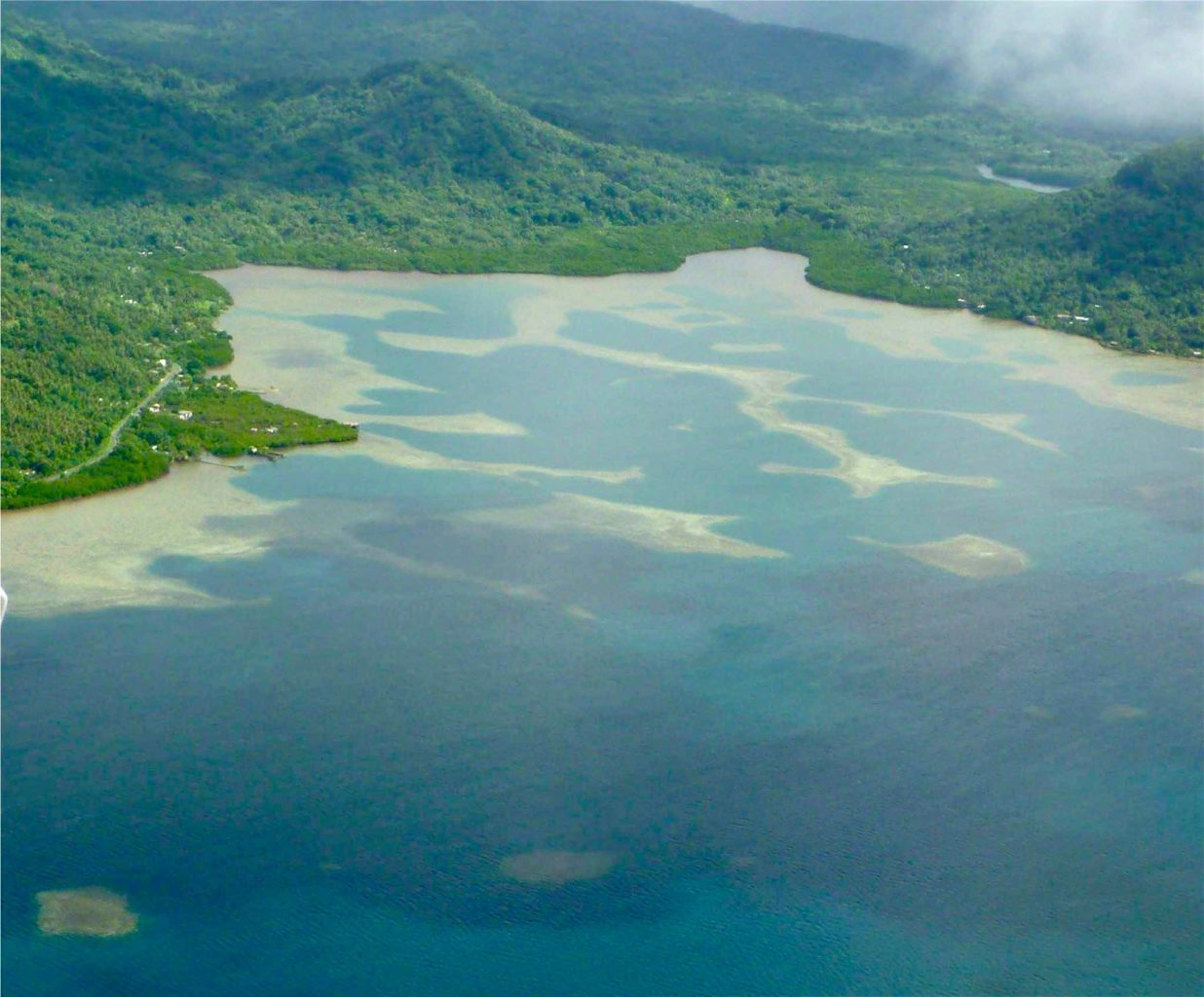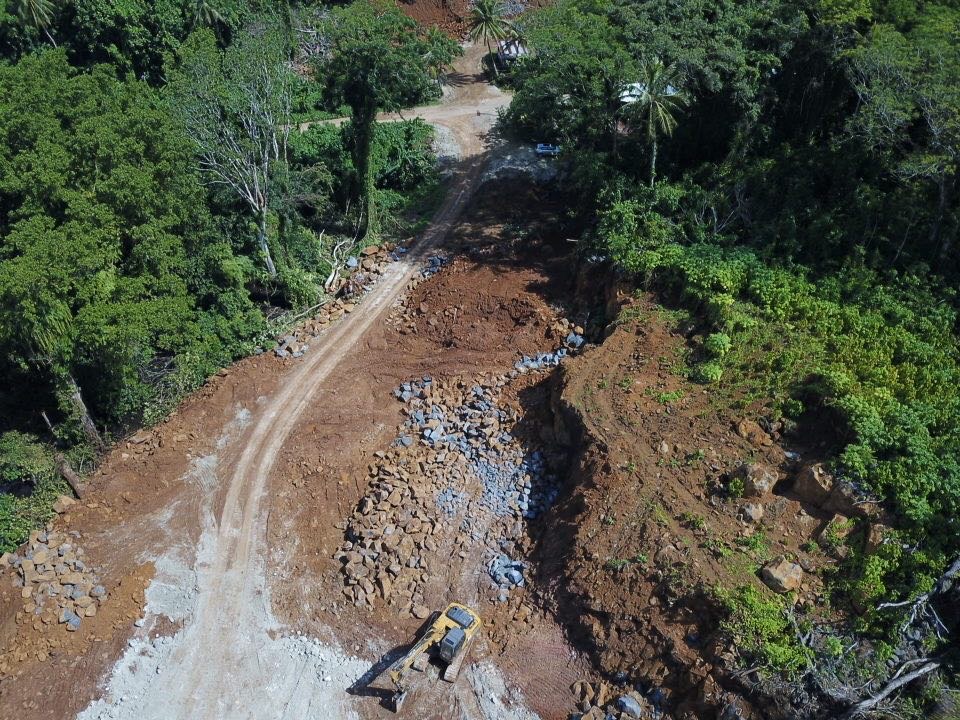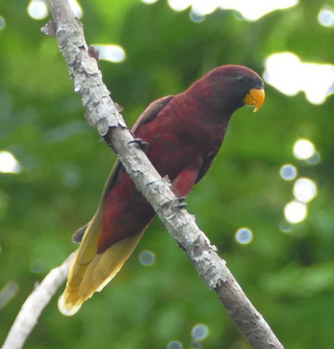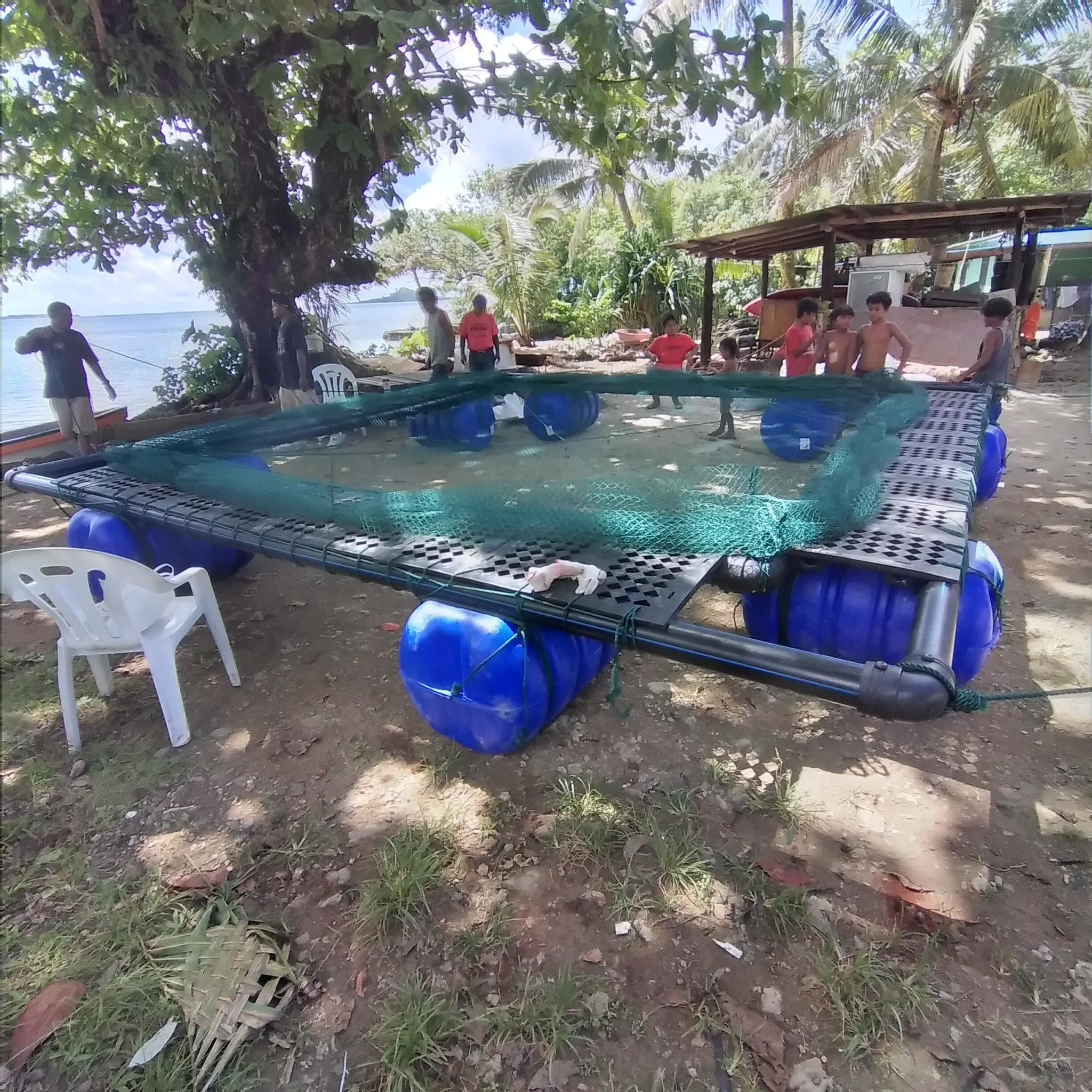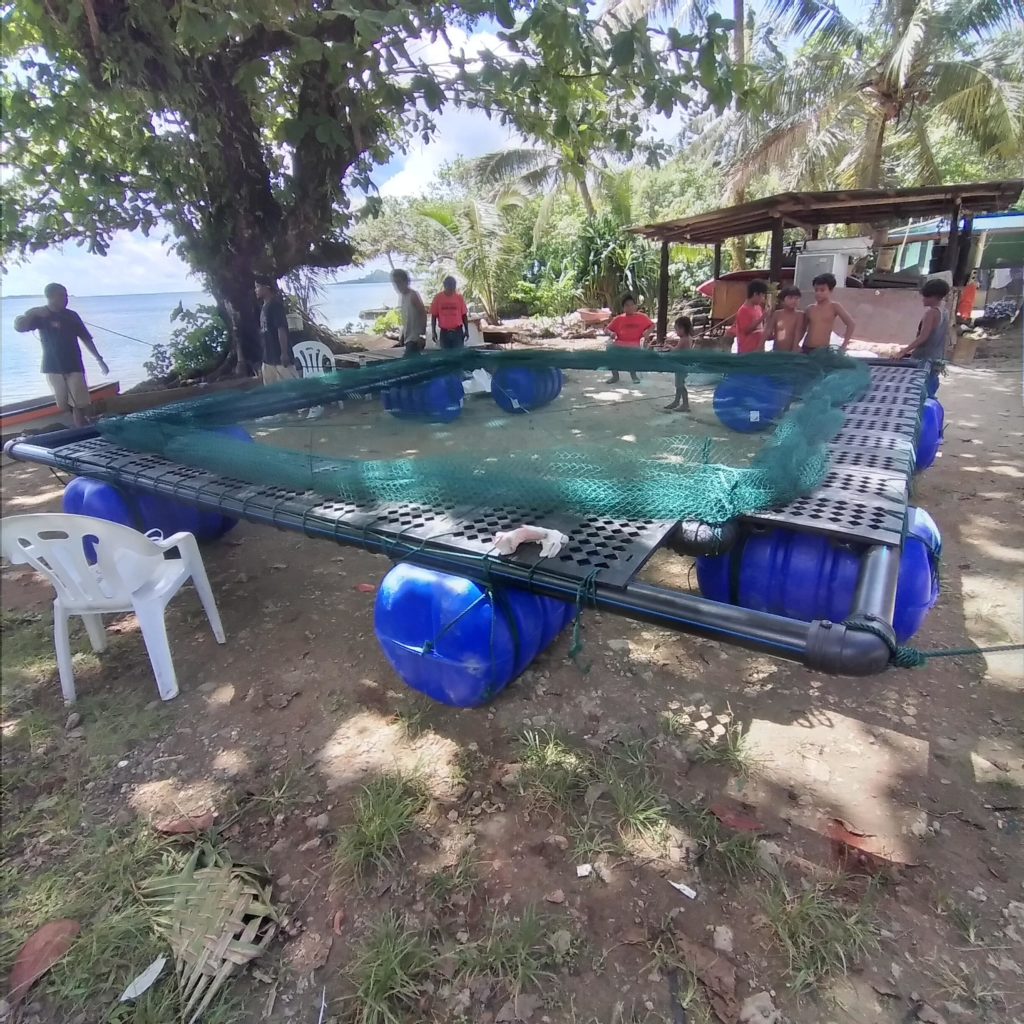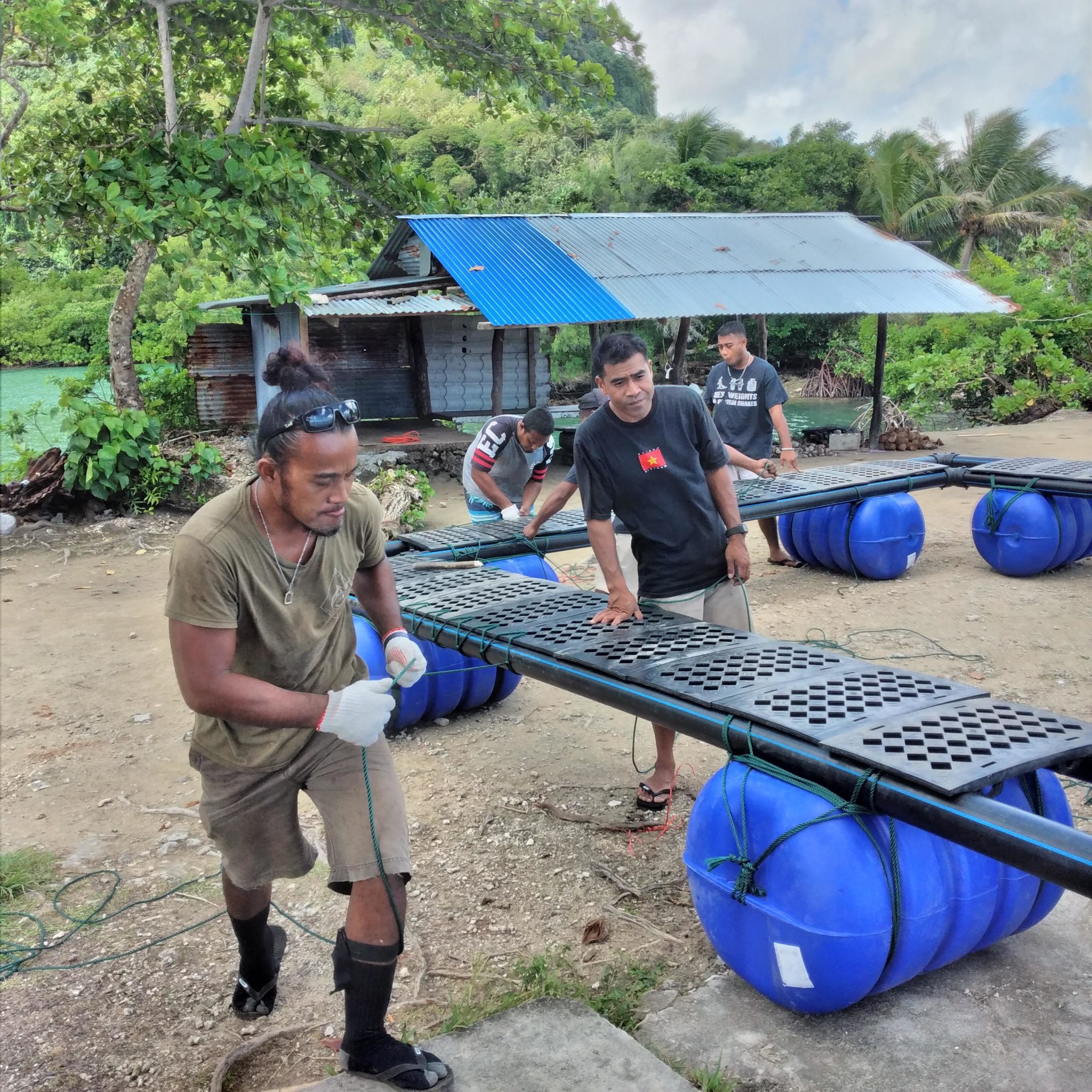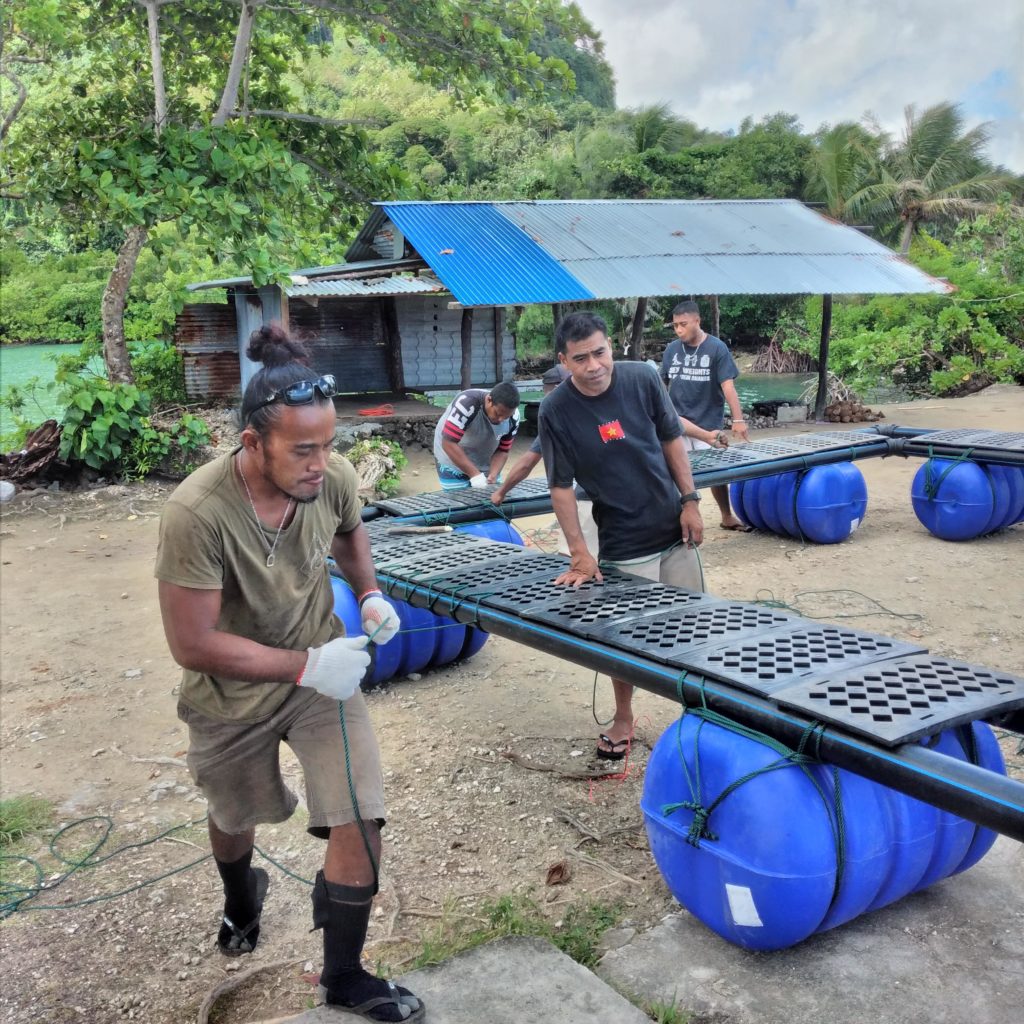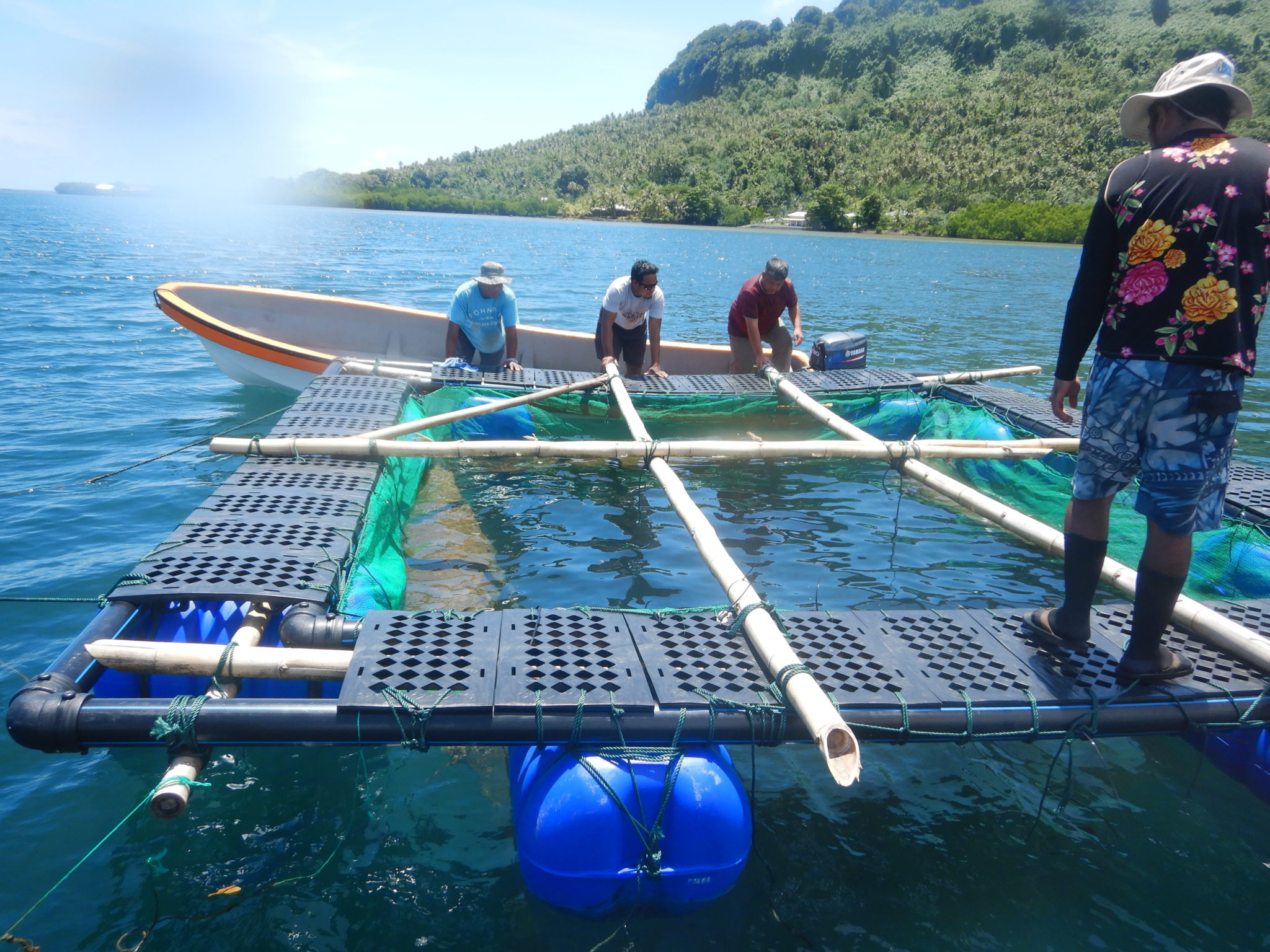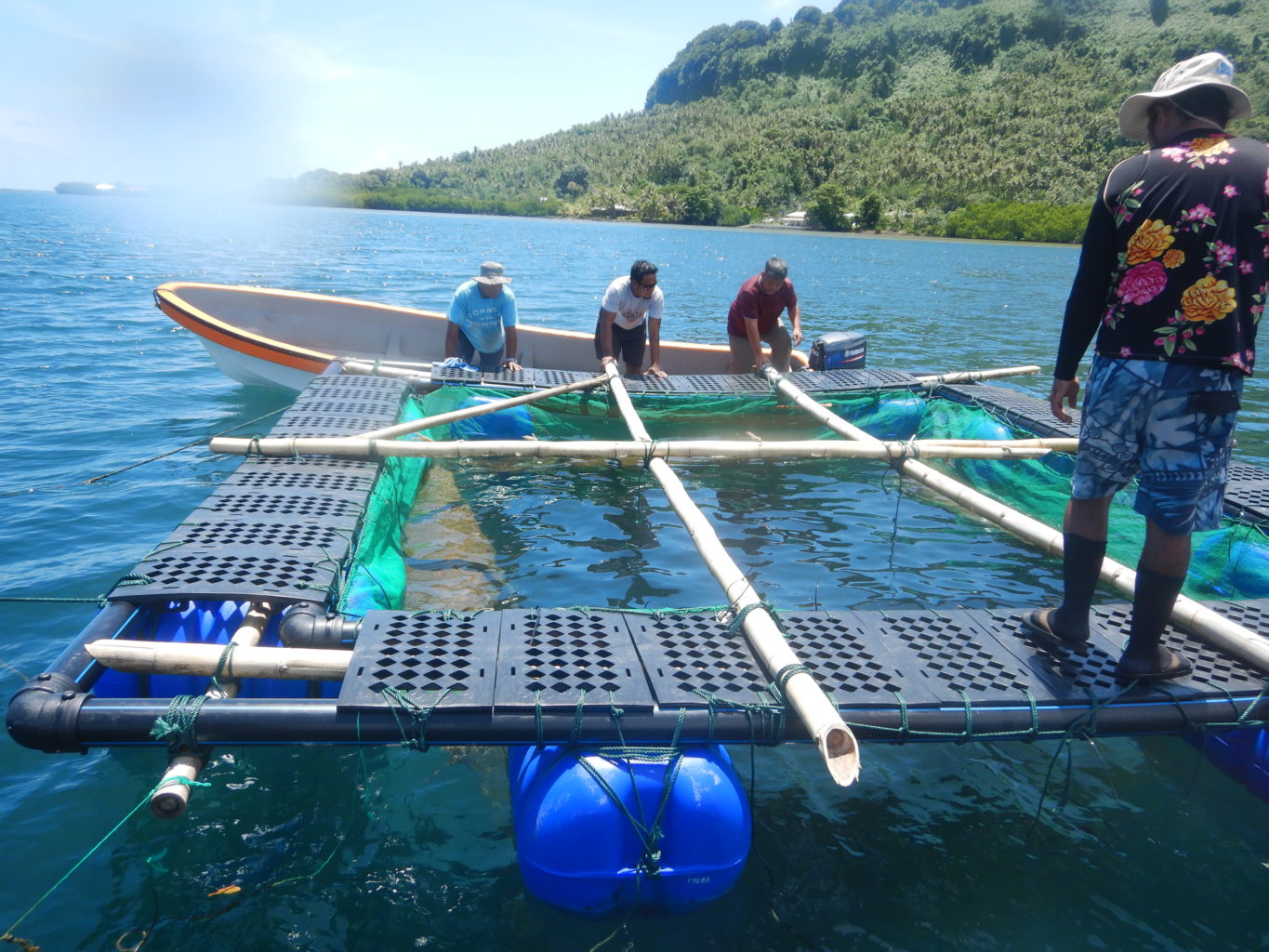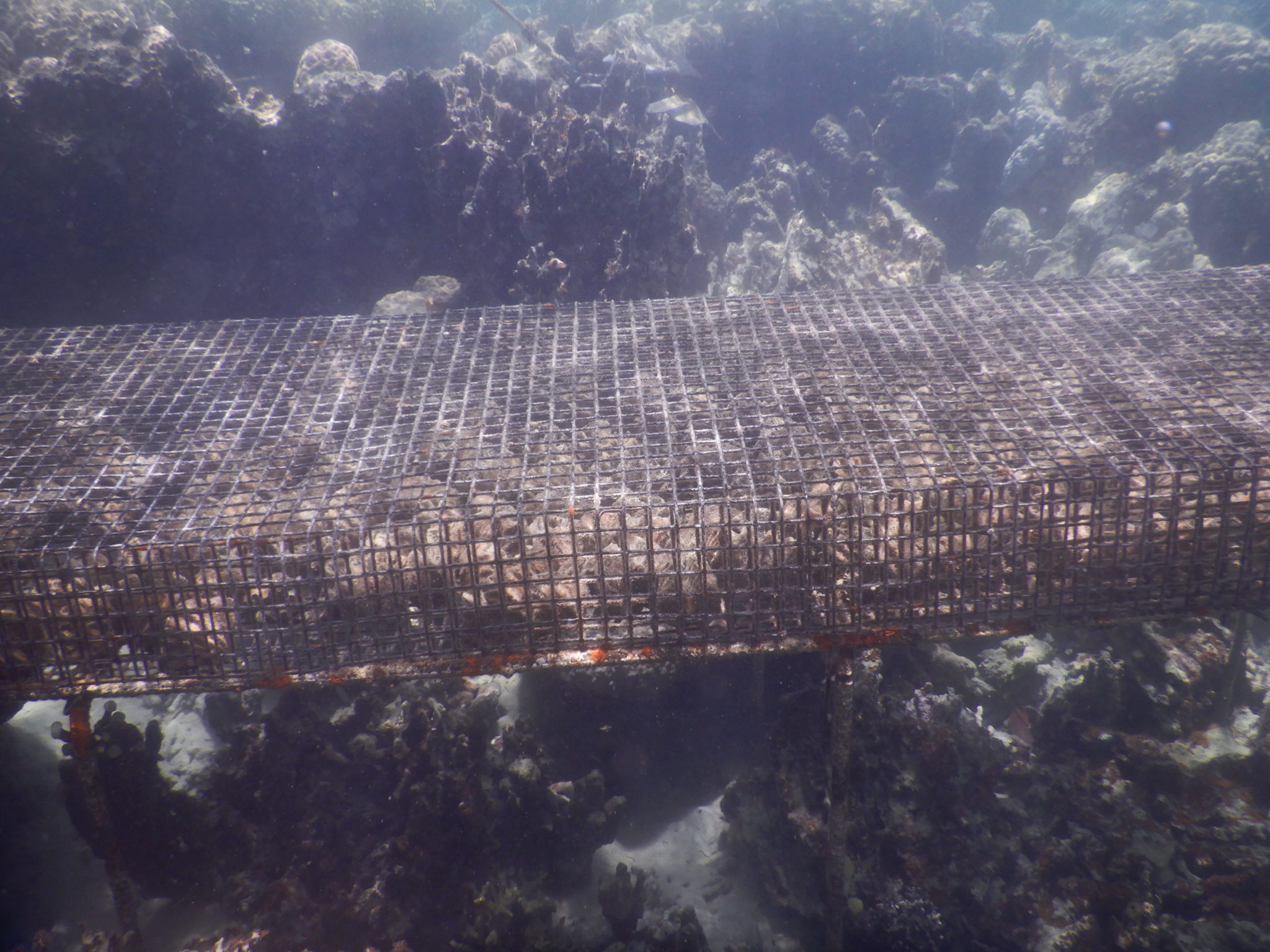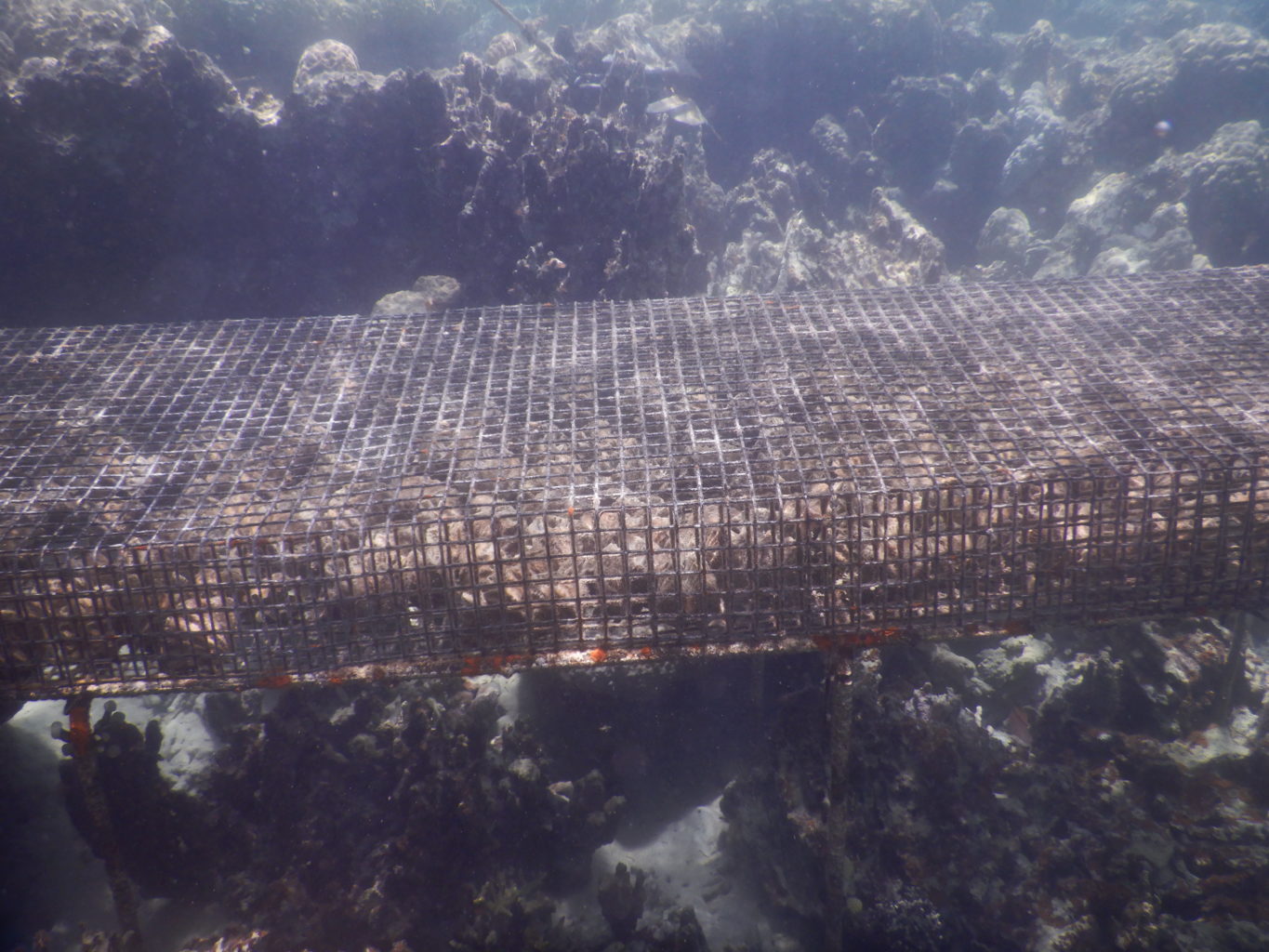The increasing global demand for building materials reaches some of the most remote corners of the world, including Pohnpei Island in the central Pacific.
Near Awak Village, dredging machines are scraping up dead coral for use as fill in road and construction projects. Dredging is scarring the coastal and marine ecosystems that support Awak’s 1,500 residents, as well as historical sites. Dredging tears up coral reefs and generates sediment that smothers corals. It also alters the flow of water to mangrove forests, often killing them. The roads built to accommodate large machines also destroy coastal forests.
The Awak area has seven species of mangroves, which provide a nursery for mangrove crabs and many species of fish. Birds are abundant, including the endemic Pohnpei lorikeet (considered vulnerable by the IUCN), and the globally threatened Pohnpei kingfisher.
The proposed protected area includes a small dredging project, which the community hopes to stop from expanding. The traditional chiefs of the village are working to make the area part of the Pohnpei Protected Area Network. Inclusion would protect all intact mangrove forests, seagrass beds, and reefs in Awak. Only subsistence fishing would be allowed. (As part of this campaign, local NGOs made a short video.) Our project partners say that an agreement with Seacology will help the chiefs get legal protection for the area.
Traditionally, Awak is a fishing village. With a Seacology grant, the community is building a small aquaculture facility, where they will raise giant clams, rabbitfishes, and other species. The goal is to replenish the once teeming reefs and mangrove habitats nearby. All members of the village will have full access to the facility and the aquaculture products.
Clam larvae released in Awak Village’s lagoon will float on the current to nearby villages, benefitting them as well. We hope this will also spread the word about the need to protect mangroves, seagrass beds, and reefs around the whole bay.


